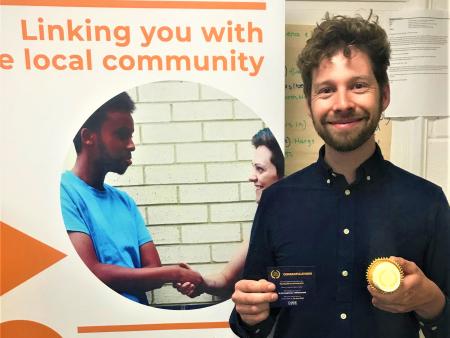
PEF Project Interview with our Careers and Enterprise Officer Brenda
Pathways to Enterprising Futures (PEF) is a programme for Entrepreneurship and Employability, aiming to open up employment pathways and support enterprise skills for people from a refugee or migrant background. The Pathways to Enterprising Futures project is a partnership with CREME at Aston University, Citizen’s Advice, and Punch Records working to deliver an innovative service to open pathways and support enterprise skills for communities in Birmingham.
We talked to our Careers and Enterprise Officer Brenda about her journey with the PEF Project. Keep reading to find out more...
The Pathways to Enterprising Futures project is a partnership with CREME at Aston University, Citizen’s Advice and Punch Records working to deliver an innovative service to open pathways and support enterprise skills for communities in Birmingham. The project is working to help nearly 600 people from diverse communities gain the tools they need to pursue their employment or start up a business.
1. What is your name and which department do you work in at ACH?
My name is Brenda Wangari and I work for the Himilo training department here at ACH based in the Birmingham Office.
2. How would you describe this project for those who do not know?
The project that I am currently working on is called Pathways to Enterprising Futures (PEF). It is partly funded by the European Social Fund working with partners; Citizens UK and our principal lead Aston University.
The project aims to engage with individuals from diverse backgrounds from hard-to-reach communities to ensure they have the opportunity and awareness to either start their business, apply for a suitable job or get back into education/training.
This is done by offering tailored support, information, and guidance to individuals across the Greater Birmingham and Solihull region by providing a relevant and customised plan of support.
3. What stage is the project at now? What kind of progress has been made?
We are now in the last year of our project. Initially approved in April 2021 although the project began in the last quarter of that year, I would say we made quite a bit of progress. We have made progress in building and strengthening internal and external connections with stakeholders and other organisations who share similar self-interests. This has helped with the provision that we offer and has enhanced the value we offer to our service users onboarded onto the project.
4. What is the target audience of this project?
Our aim is to engage with individuals from diverse backgrounds within the hard-to-reach communities here in Greater Birmingham and Solihull.
Our project eligibility criteria include:
- Aged 18+ and above
- Resident of Birmingham and Solihull
- UK citizen or has the right to work and live in the UK.
- Not in employment or self-employment.
We also work with individuals who are over 50 years of age, without basic skills, lone parents, from an ethnic minority background, or living with a disability.
5. How has the project helped participants build better lives in the UK?
The project has enabled participants to know that there is help and support, particularly for those who are new to the country and are looking to integrate and experience life here in the UK. From the positive feedback received from different clients who we have supported, the main element that comes up is how they have been empowered through the various social and employability and entrepreneurship workshops that they have engaged in.
Their newfound confidence, self-belief, and skills acquired such as; CV writing, interview skills, and ESOL classes enable them to break through barriers to enter the labour market, become self-employed or get back into training.
6. What is the main goal you want to achieve with this project?
Through this project, I would like to promote equal opportunities for underrepresented individuals, reduce poverty by providing access to quality education, training, employment, and enhance our communities social and economic empowerment.
I hope this project and the research analysis that comes out of it will enable policymakers to become more aware of how they can support the needs of entrepreneurs, and provide a practical framework for operating accessible support and networks for marginalised communities, with aim of combating the ever so present barriers that they face in their journey to employability, enterprise, and entrepreneurship.
7. How can we contact you about this project?
Feel free to contact us about the project via email - business.support@ach.org.uk or career.support@ach.org.uk



